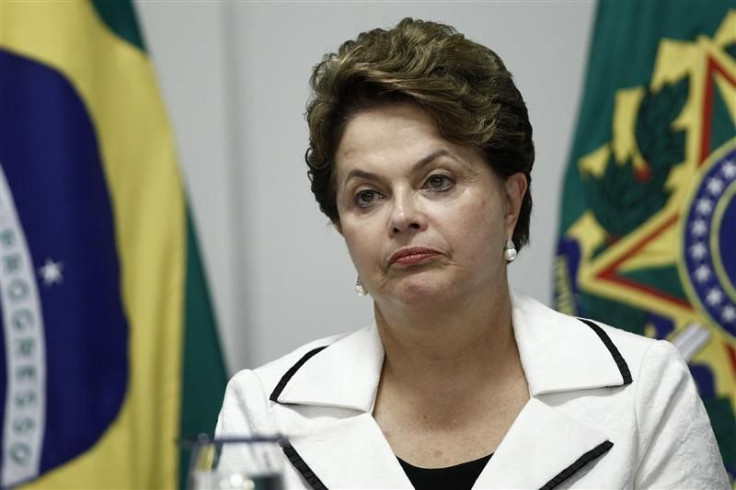Brazilian President Hits Obama On Monetary Policy

Brazilian President Dilma Rousseff said she used a Monday meeting with U.S. President Barack Obama to press her concern that monetary policy pursued by the U.S. and Europe was inhibiting Brazil's economic growth.
Rousseff reprised a critique leveled by the so-called BRICS nations -- Brazil, Russia, India, China and South Africa -- that aggressive monetary policies undertaken by more affluent nations were undermining other countries. Rousseff said on Monday, during a talk at the White House as part of her official visit to the United States, that expansionist policies like lowering interest rates can ultimately lead to the depreciation of the value of currency of developing countries, thus impairing growth.
Brazil's finance minister expressed a similar concern in January, warning of a currency war as an influx of cheap foreign currency, spurred in part by America's attempt to revive its flagging economy by keeping interest rates low, had caused the Brazilian real to become overvalued. Brazil's exports have suffered as the real has increased in value against the dollar.
Today's [problem] doesn't have to do with China, Trade and Industry Minister Fernando Pimentel told Reuters in March. It has to do with the dollar and the euro, he said, referring to the European currency as well, which has also depreciated relative to the Brazilian real.
Obama did not address Rousseff's criticisms when speaking to reporters after their meeting, but he said he welcomed deeper economic ties between the United States and Brazil.
The good news is that the relationship between Brazil and the United States has never been stronger, but we always have even greater improvements that can be made, and I feel very fortunate to have such a capable and farsighted partner as President Rousseff, he said.
© Copyright IBTimes 2024. All rights reserved.




















